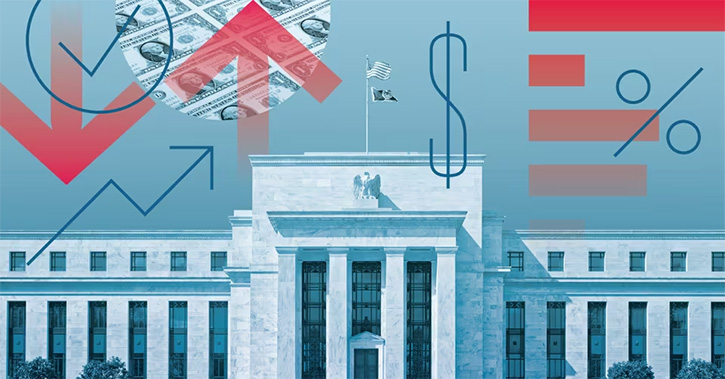Ashley Redmond: I'm Ashley Redmond for Morningstar and I am on the line with Jurrien Timmer, Fidelity's Director of Global Macro.
Jurrien, thanks so much for joining me.
Jurrien Timmer: Hello. How are you?
Redmond: Jurrien, global financial markets have had a few shocks this year such as January's fears of a credit bubble burst in China and then in July we had the Portuguese Bank crisis, but in both cases, the market seemed to settle down afterwards. Overall, how do you think global markets have fared this year?
Timmer: They've been very dispersed. Let's put it that way. As you said we've had a lot of headline shocks: Russia-Ukraine, ISIS, the Scottish referendum and now protests in Hong Kong. It seems to be an endless list. The question always for me as an investor, as an asset allocator is, is it systemic and to which market?
And for the U.S. or for the North American markets, so far the answer really has been no. Russia-Ukraine was systemic, obviously to Europe, because of the trade that takes place. The Chinese headlines are systemic for China perhaps, but the U.S. has been able to kind of shrug off a lot of these headlines. Investors [then] go back to the fundamentals, which in the U.S. are actually pretty good. The economy is expanding at a pretty good clip. Earnings are growing at about 8% year-over-year, valuations are not great, but they are not terrible. So, it's a steady-as-she-goes market here and the headlines really haven't impacted us that much other than for a few days at a time.
Redmond: You mentioned economic fundamentals; can you elaborate on what economic fundamentals you review?
Timmer: Over the long-term, stock prices follow company earnings and valuations play a role in that. So, company earning are important, valuations are important, and of course earnings will tend to follow the economic cycle, which in the U.S. looks pretty good. We're kind of in a mid-cycle expansion, so we look at things like employment, inflation, and there is whole host of indicators that we follow to track how the economy is doing. And really the key question is, at what point does the economic expansion become so mature that it starts to generate inflation? Because that brings monetary policy into the fold and so far we've been in a relatively sweet spot where the growth has been good, but the inflation has really not accelerated at all. So, we're in a pretty good place here.
Redmond: Jurrien, for the retail investor, why is it so important to get back to the economic fundamentals after an event?
Timmer: Because it's important to not get what we call whipsawed by the headlines. For the average investor it's very important to have a plan, to have an asset allocation or a portfolio that is allocated in the right way according to your age or demographics. Also, what kind of assets you have and how many years you have until retirement. People need to plan. Probably the hardest part of having the plan is [sticking to the] plan. Often times when a market goes down a lot people abandon their plan and then they sell at the bottom or when the market goes up a lot they abandon their plan and buy everything at the top. So, for the average investor, unless you are a trader or something, it's important to judge whether the headlines are game changers. If they're not just stick with the plan and follow the fundamentals, which as I mentioned are still pretty good in the North American markets.
Redmond: Jurrien, I know that you believe with geopolitical events that they are less likely to be broad-reaching, so for investors when there is an event happening, how did they know if it's going to be a short-term event or a systemic event?
Timmer: Well systemic events really affect the markets on a system-wide basis. We all remember the financial crisis in 2008 and that was obviously a systemic event. Systemic events tend to involve leverage and of course there was way too much leverage leading up to the financial crisis. There is not that much leverage this time around, so that makes me a little bit more comfortable that a systemic event is less likely, at least one that is a financial event. Obviously there could be systemic geopolitical events. [For example], if oil prices were to go up $20 to $30 and stay there because there was some kind of terrorist attack in Iraq on an oil installation, so people need to use their judgment and ask themselves, is this going to affect the markets on system-wide basis? Which is what I mean by systemic.
But even then, if investors are properly diversified and they rebalance their portfolio and they are putting money away in new markets on a monthly basis through a retirement savings plan, you are probably better off just sticking with that plan. And if there is a dislocation because something happens in the markets and it's not a systemic event, then maybe that's an opportunity to rebalance if an investor has been underexposed to one asset class or another. But generally speaking, for the typical investor; A, have a plan; and B, stick with the plan regardless of the headlines because a good portfolio over a long horizon should be able to withstand just about anything including a financial crisis. Investors who had a 60-40 type allocation between equities and bonds going into the financial crisis have already more than made up for their losses now that we're in 2014. So, even really, really bad shocks, if people just stay the course, eventually they will recover from it.
Redmond: It’s October now, has there been anything in the markets this year that have surprised you so far, or is there anything that investors have in your opinion overlooked?
Timmer: What we've had so far this year is what I call a stealth correction. So, we have a kind of a strange dispersion in returns. If you look at the S&P 500 or the Dow, the S&P is up 7% or 8% year-to-date and looks very quiet—8% is pretty good—we're in October now. You know the market went up 32% last year, so doing another 8% is pretty good. But when you look under the surface you see that small caps are actually down 6% on the year, so that's a differential of 6% plus 8%, 14% between large caps and small caps. So, that's very interesting. There is definitely some corrective behaviour going on beneath the surface whether it's emerging markets or small caps and more recently it was high yield bonds. There is definitely a lot going on but when you just look at the index level, you are not really seeing it. So, that's been a very interesting development this year. And something that I was expecting at the beginning of the year—I'm actually a little surprised at how strong the S&P has been— I was thinking it would be more of a sideways year as the stock market digests and anticipates and get used to the notion that monetary policy is undergoing a regime shift from ultra-accommodative to more neutral.
Redmond: Great. Thanks so much Jurrien.
Timmer: Thank you.
Redmond: For more on markets, click on the Markets tab.




















